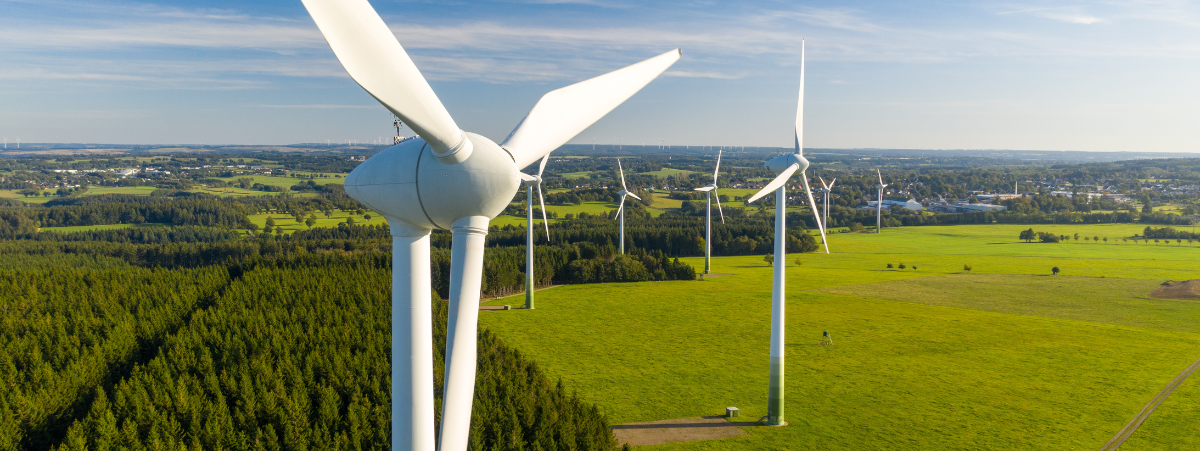With the world’s largest climate event just around the corner and extreme weather events already causing mayhem around the globe, expectations are at their peak this year. Here are the five advances ClimateTrade expects from the event in Sharm el-Sheikh.
1. Full acceptance of the work of the Integrity Council for Voluntary Carbon Markets
The Integrity Council for Voluntary Carbon Markets (ICVCM) is doing tremendous work to bring together the entire carbon ecosystem in setting clear guidelines on carbon credit quality and the functioning of the overall market. It is not easy work, and the Council’s attempt to define Core Carbon Principles (CCPs) has been met with resistance, with certain market players, such as Verra, noting that the process being put in place to guarantee the quality of carbon credits would be “unworkable”.
We at ClimateTrade firmly believe in the necessity to build integrity in carbon markets, and that will not be possible without the buy-in of all market participants in initiatives like the ICVCM. In response to Verra’s statement, our co-founder and head of impact José Lindo said to Carbon Pulse: “In my opinion, we are overly focusing on the ‘how’, i.e carbon integrity processes, and rather we should start the debate from the ‘why’ i.e the purpose served by the CCPs, and reflect on legitimate requirements voiced by countries, scientists, environmental organizations, indigenous communities and, obviously, voluntary carbon market players.”
For this reason, we expect the Conference of the Parties to reaffirm the role of the ICVCM in helping align carbon credit supply with quality and transparency expectations.
2. Final definition of the Paris Agreement’s Article 6 rules
Last year in Glasgow, countries clarified some of the rules of Article 6, the part of the Paris Agremeent that governs the functioning of carbon trading between countries. For instance, it was decided that to avoid double counting, the country where the mitigation project is based holds the power to decide whether the credits should go towards its own Nationally Determined Contributions (NDCs) or be sold internationally, in which case it would be listed as a credit on its records. Negotiations also clarified which of the credits generated under the Clean Development Mechanism (the Paris Agreement’s predecessor) could be brought over to the new system, and set up some rules around taxing carbon trading transactions.
But much remains to be defined for Article 6 to become operational. In particular, we expect this year’s conference to determine the mechanisms that will govern the use of Internationally Transferred Mitigation Outcomes (ITMOs), the units meant to be used for the international emissions trading between Parties to the Paris Agreement.
3. Regulating the registration of Nationally Determined Contributions (NDCs)
Equally, the system for calculating and registering Nationally Determined Contributions (NDCs), the emissions reductions countries decide to achieve every five years, is currently not regulated, which can lead to wide variations in ambition between countries. ClimateTrade expects COP27 negotiations to define rules as to how these contributions are calculated, communicated and adjusted.
4. No changes in Paris Agreement signatories
The current geopolitical landscape, particularly the Ukraine-Russia war, could put the future of the Paris Agreement at stake. As seen with the withdrawal of the U.S. from the agreement following the election of Donald Trump, governments have the potential to weaponize the world’s emissions reduction goals to achieve their political ambitions. We hope this year’s Conference of the Parties will see no changes in Paris Agreement signatories or faltering in their commitments.
5. Inclusion of biodiversity in carbon market discussions
As our understanding of climate change grows and climate action matures, it is becoming evident that biodiversity protection should be part of the carbon equation. This year will be the 15th edition of the UN Biodiversity Conference, which has been run alongside the climate change conference so far. We expect COP27 to mark a turning point in the way countries approach these two areas of sustainability, and a recognition that the two are inextricably linked. ClimateTrade is already working to protect biodiversity in the same way carbon is offset (through voluntary biodiversity credits) and we believe the nascent nature protection credit system could learn a lot from the development of a working carbon market.







